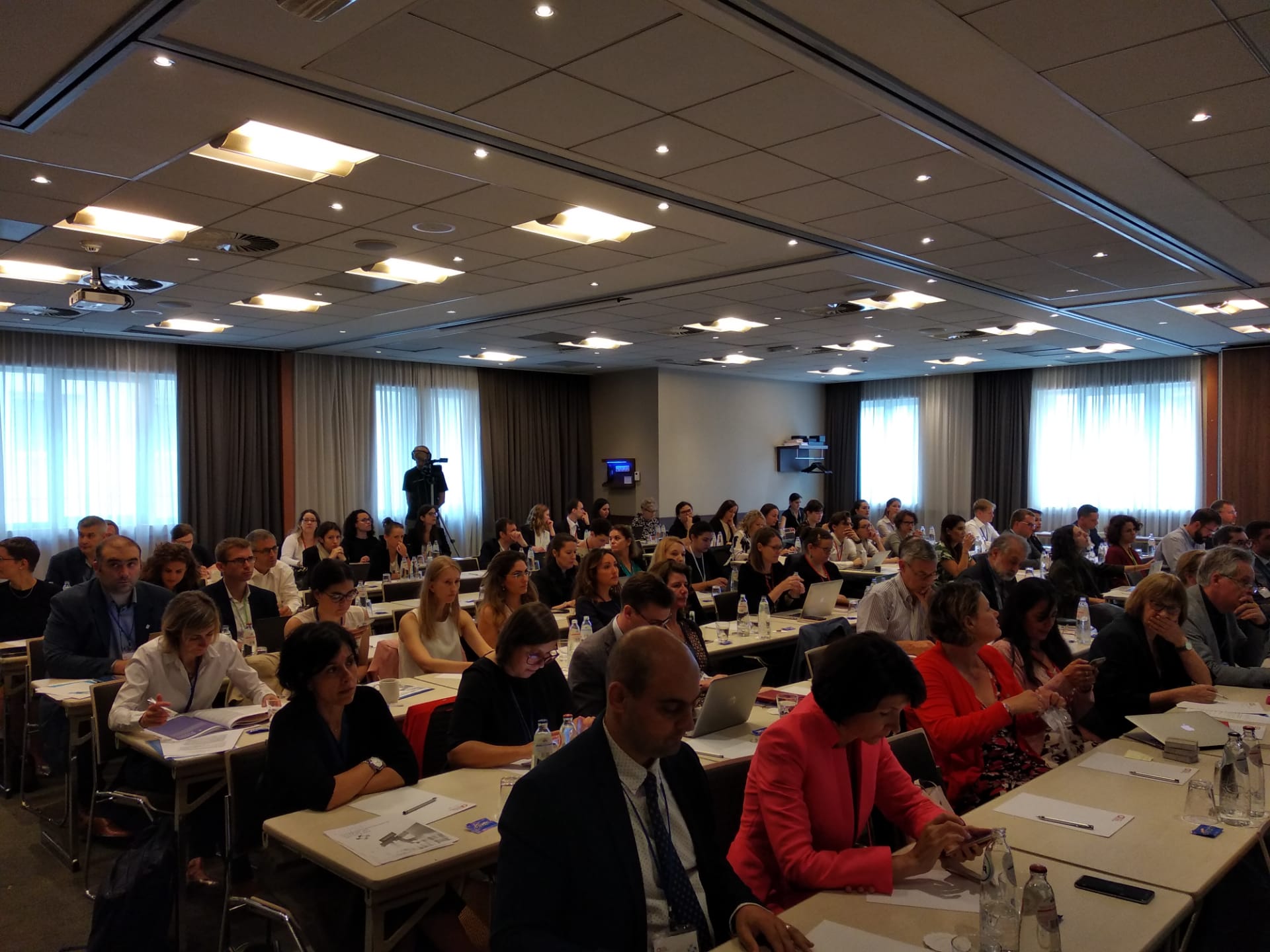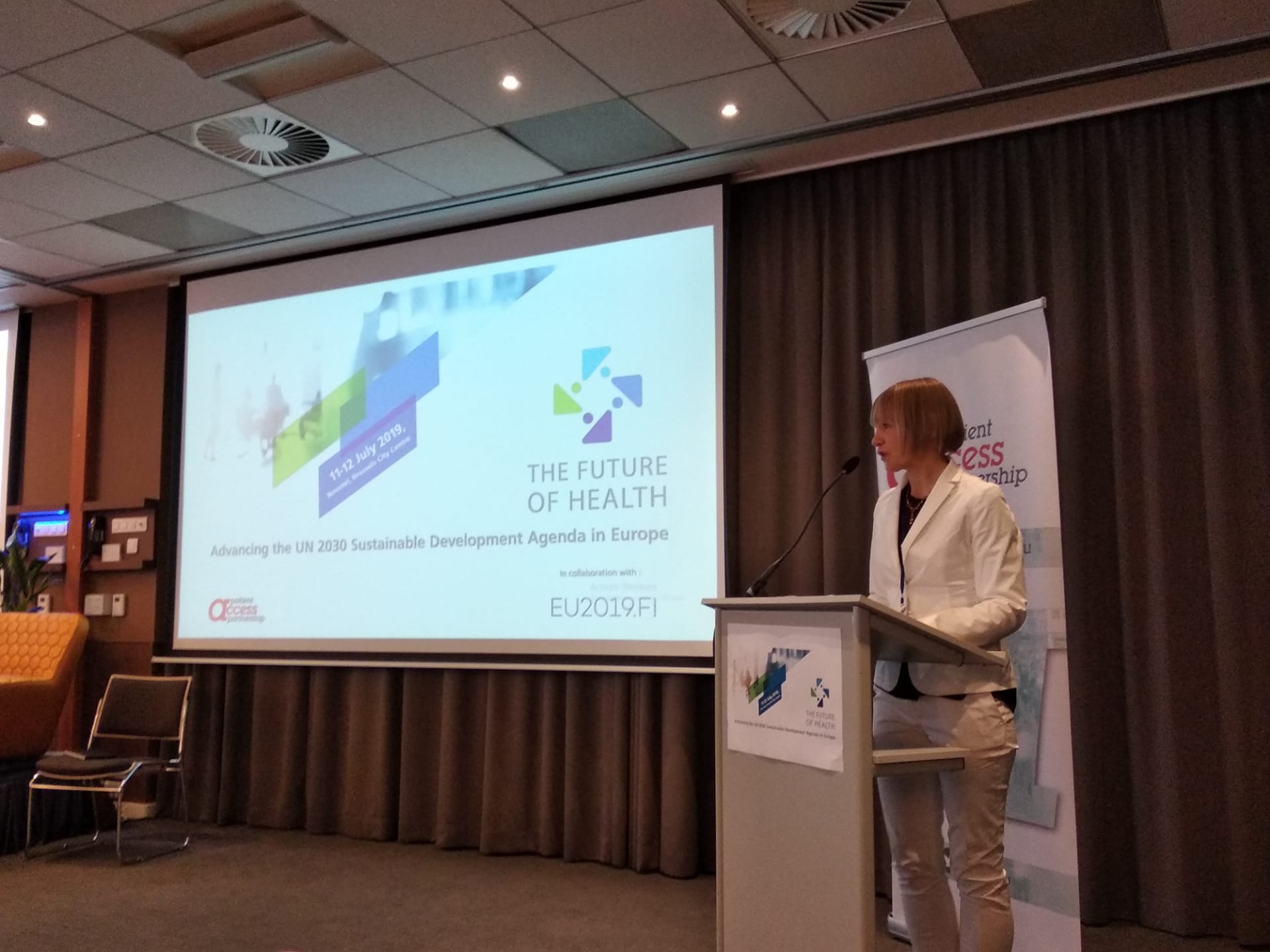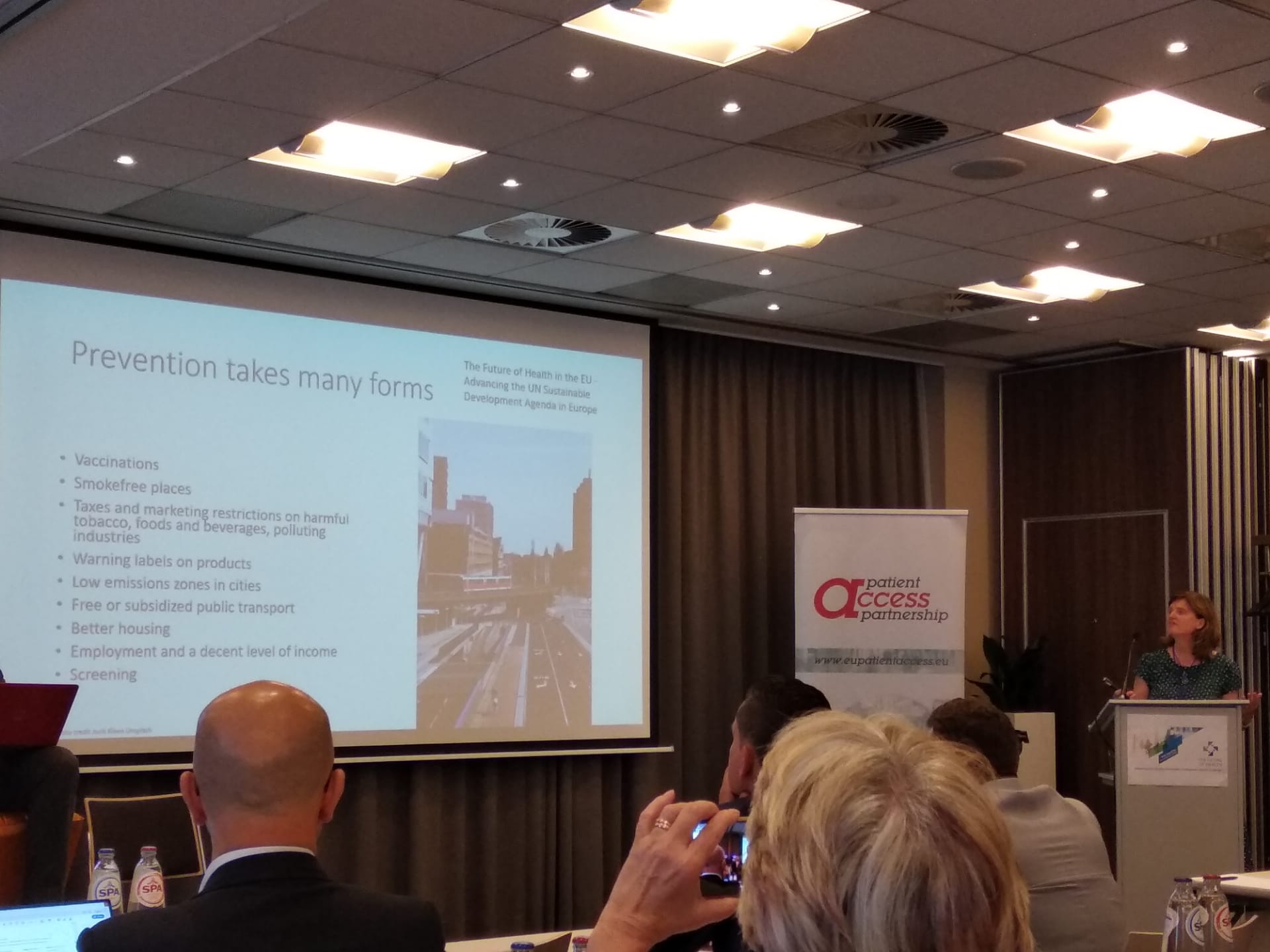On 11 and 12 July, EFA was proud to contribute to the high-level conference of Patient Access Partnership (PACT) on ‘The Future of Health: Advancing the UN 2030 Sustainable Development Agenda in Europe’, which was organised in Brussels.
Ensuring equitable access to quality healthcare for all
In light of the ongoing institutional changes, the event aimed to bring together policymakers and stakeholders to engage in discussions on the definition of the collective priorities and actions that are needed to advance the UN Sustainable Development Agenda 2030 in Europe, and ensure equitable access to quality healthcare for all.

Participants included members of the European and national Parliaments, officials from the European Commission and the OECD, scholars, as well as representatives from the Finnish and Romanian permanent representations.
EFA Director Susanna Palkonen highlights the need to improve access to healthcare in the EU
EFA Director and PACT Chairperson Susanna Palkonen opened the conference by stressing the importance of improving access to healthcare in the EU: Challenges should be seen as opportunities for improvement, and the duty of the stakeholders is to establish some of the potential solutions and present their collective ideas, responsibilities and priorities for the future of health in Europe.

Economy of well-being: Health policy as a human right
The first interventions came from the present and the previous Council presidencies. Päivi Sillanaukee from Finland highlighted the intention of her country to work towards a more inclusive and protective Europe, on the basis of the new inter-sectoral concept of ‘economy of well-being’.
Finland sees the promotion of health policy as a human right, and a precondition of welfare. In this context, the Finnish presidency, starting from 1st July for a period of 6 months, aims to invest in new technologies and research excellence.
The Romanian presidency, which just stepped down, was represented by Stefan Staicu. He emphasised some of the achievements of his country during the previous 6 months, including Antimicrobial Resistance, the technical aspects of Health Technology Assessment, patient safety, and vaccination.
Policy challenges, opportunities and health cooperation
The next two sessions focused on policy challenges, opportunities and health cooperation. Prof Scott Greer from the University of Michigan and the panellists touched on the issues of subsidiarity, soft integration, the increasing need of research and EU-wide minimum standards in health.
All participants praised the importance of multi-stakeholder platforms in promoting dialogue and framing health policy. The 2nd session revolved around the economy of well-being and its implications for policymaking. On this occasion, the presenter M. Pearson from OECD and the panellists demonstrated the link between well-being and economy.
Among others, the need for better policy coherence was highlighted as key to the achievement of the Sustainable Development Goal 3 and its nine sub-objectives.
Presentations and discussions in a multi-stakeholder panel
On the 2nd day the participants were presented a summary of the outcomes of the workshops on future policy priorities held at the end of the first day. The panellists took the chance to discuss and had a lively exchange that showcased the necessity for better implementation and the importance of inter-sectoral cooperation.

Health Pact: Conclusions from the conference and a vision for future cooperation in EU healthcare
The conference concluded with the launch of ‘The Health PACT’, a document that summarises the conclusions from the conference and outlined a vision for the future of cooperation in healthcare in the EU, in line with the health-related goals as set in the Sustainable Development Agenda.
More details about the programme and the various sessions can be found here. Further, a video recording of Day 1 (11/7) and Day 2 (12/7) is available online.